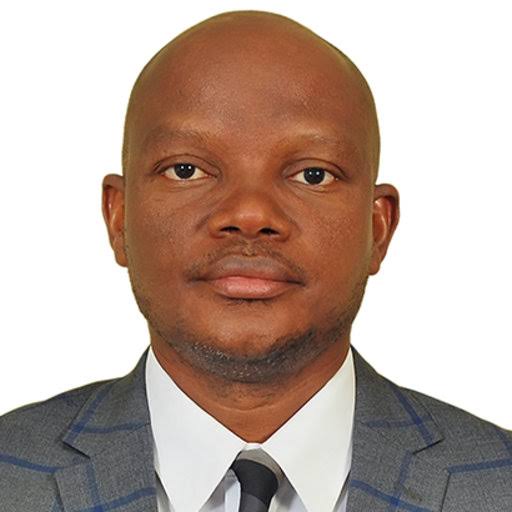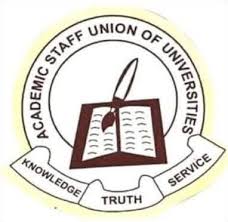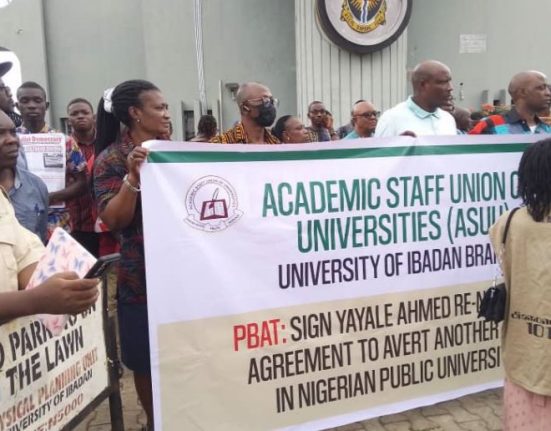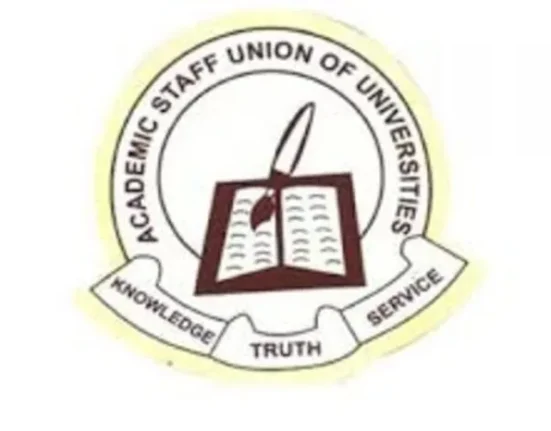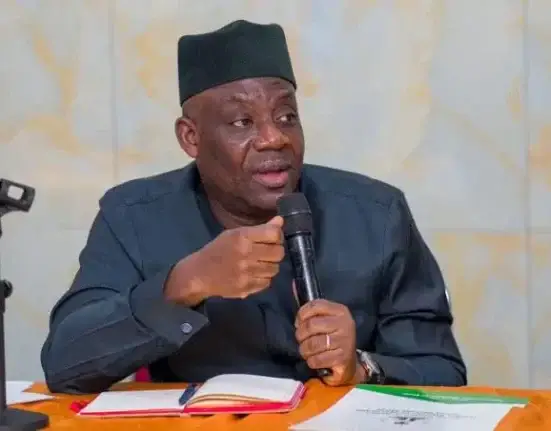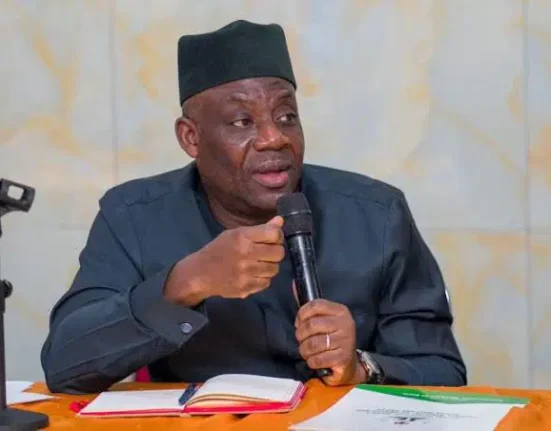The newly elected President of the Academic Staff Union of Universities (ASUU), Professor Chris Piwuna, has declared that the Federal Government’s student loan initiative lacks merit in Nigeria’s current economic reality, describing it as an unrealistic policy in a country plagued by unemployment, inflation, and inadequate support systems for youths. He made this known in an exclusive conversation where he addressed key issues threatening the Nigerian university system, especially the lingering non-implementation of the 2009 agreement between ASUU and the government.
Professor Piwuna lamented the continued neglect of university staff welfare, stating that more than a decade after the signing of the 2009 agreement, which was meant to be reviewed in 2012, the government has failed to act meaningfully on its provisions. He noted that no tangible progress has been made, even under the current administration, other than setting up yet another committee without concrete steps. He said, “This agreement was crafted to halt the decay in our university system. Yet from 2009 to 2025, we are still talking about it. If successive administrations had taken it seriously, the issues would have been significantly reduced by now.”
While ASUU has not ruled out the possibility of industrial action, the union president clarified that strike action is a global labour tool and not exclusive to ASUU. He explained that they are not eager to embark on another strike but are left with little choice when government after government fails to respond to dialogue or fulfill promises. “Nigerians only hear about ASUU when we’re on strike, but nobody listens when we try to have conversations. We don’t want to be pushed again. Let’s sit together and resolve these problems in a way that ensures lasting reform.”
Professor Piwuna emphasized that the 2009 agreement covers critical areas such as university funding, remuneration for academic staff, institutional governance, and infrastructure. He decried the state of governance within public universities, where governing councils are routinely dissolved or reshuffled without regard for consistency or academic integrity. “This is not a military operation where commanding officers are redeployed at will. Universities require stability, and the current disorder must stop.”
On the much-publicized Nigerian Education Loan Fund (NELFUND), Professor Piwuna strongly opposed the idea of offering loans to students in an economy where job creation is virtually non-existent. He criticized the policy as disconnected from the harsh realities students face. “You cannot offer loans to hungry students who have no hope of employment after graduation. What’s the repayment plan when they’re jobless? If you have money, use it to award scholarships or grants. That’s how you fund education, not by placing additional burdens on already struggling youths.”
Speaking on the controversial decision by the Federal Government to scrap the Bilateral Education Agreement (BEA) scholarship scheme, the ASUU leader said such a move betrays a short-sighted approach to policy-making. According to him, education is a global affair and should include cross-border exchanges that promote mutual learning. He stressed that the decision seems politically motivated rather than aimed at long-term national development. “The BEA scheme was not just about funding students abroad; it was about knowledge exchange. If you remove that, you close the door to global engagement. That’s not how you build a strong education sector.”
Asked if the Federal Government had made any move since ASUU’s latest warning over a potential strike, Professor Piwuna revealed that no official response had been received. He warned that the union would not continue to wait in silence. “When we act, everyone will blame ASUU. But when we raise alarm, no one listens. The government must stop this cycle of neglect and confrontation.”
On broader funding for tertiary education, the ASUU President insisted that the government must revisit and implement the existing framework in the 2009 agreement, which offers clear directives on sustainable university financing. He said any meaningful investment must start with honoring commitments already made.
Regarding the disbursement of the recently released ₦50 billion in earned academic allowances, Piwuna stated that ASUU has no dispute with the Federal Government on the matter. He explained that the terms were agreed upon long before the current administration and clarified that if other university-based unions have grievances, they should engage directly with the government. “We have no issues with NASU or SSANU. Everyone knows what was agreed, and ASUU stands by that.”
Commenting on the emergence of the Congress of University Academics (CONUA) as a parallel academic union, Professor Piwuna played down the controversy, describing it as a family disagreement that would eventually be resolved. He urged the public not to overblow the issue. “We are one family. Every family has its differences. Nigerians will soon hear that it’s all been resolved.”
The ASUU leader also expressed grave concern over the escalating brain drain in the academic sector. According to him, the continued migration of Nigerian lecturers to other countries is directly tied to poor welfare and lack of infrastructure. “When people earn one-tenth of what their colleagues earn in neighbouring countries, what do you expect? Improve conditions here, and they’ll stay. We’ve told the government what needs to be done. It’s all about political will.”
Reacting to the recent technical failure that disrupted the Unified Tertiary Matriculation Examination (UTME), Piwuna said the union had yet to formally discuss the issue. However, he hinted that once it’s deliberated, ASUU will make its position known.
On the rise in campus cultism and recent comments by Edo State Governor, Monday Okpebholo, Professor Piwuna linked the problem to deeper social and economic instability. He said cultism thrives in a system that does not support students academically or socially. He called for early intervention strategies by university authorities, proper student welfare systems, and the removal of criminal elements from campuses. “These young people are trying to find strength where the system has failed them. With the right support, mentorship, and discipline, the tide can be turned.”
With Nigeria’s education sector facing layered challenges, ASUU’s new leadership appears poised to take a firm but consultative approach in engaging with the Federal Government. Professor Piwuna’s message is clear: fix the economy, honor agreements, and treat education as a long-term investment, not a political afterthought.

